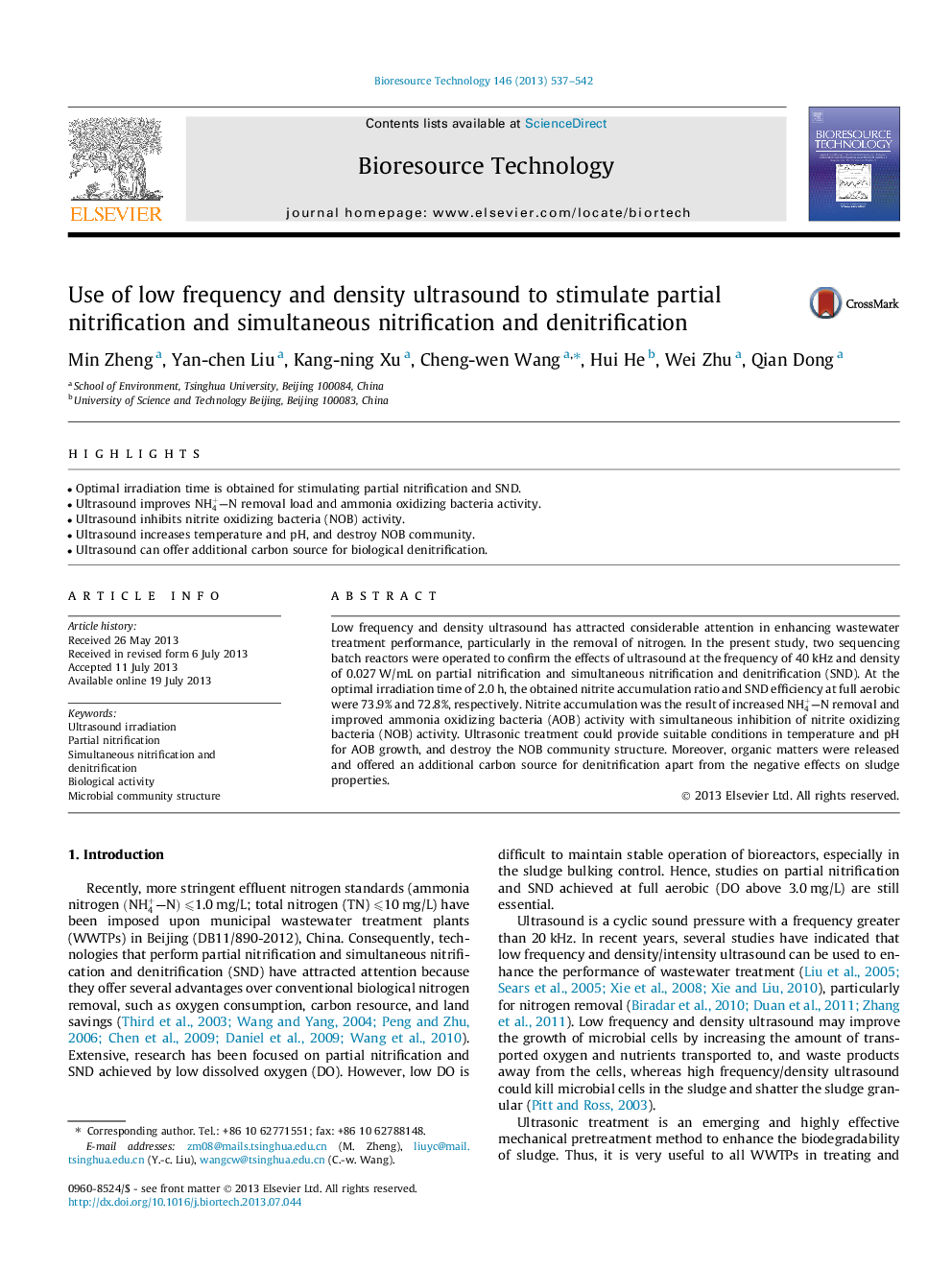| Article ID | Journal | Published Year | Pages | File Type |
|---|---|---|---|---|
| 7080540 | Bioresource Technology | 2013 | 6 Pages |
Abstract
Low frequency and density ultrasound has attracted considerable attention in enhancing wastewater treatment performance, particularly in the removal of nitrogen. In the present study, two sequencing batch reactors were operated to confirm the effects of ultrasound at the frequency of 40Â kHz and density of 0.027Â W/mL on partial nitrification and simultaneous nitrification and denitrification (SND). At the optimal irradiation time of 2.0Â h, the obtained nitrite accumulation ratio and SND efficiency at full aerobic were 73.9% and 72.8%, respectively. Nitrite accumulation was the result of increased NH4+-N removal and improved ammonia oxidizing bacteria (AOB) activity with simultaneous inhibition of nitrite oxidizing bacteria (NOB) activity. Ultrasonic treatment could provide suitable conditions in temperature and pH for AOB growth, and destroy the NOB community structure. Moreover, organic matters were released and offered an additional carbon source for denitrification apart from the negative effects on sludge properties.
Keywords
Related Topics
Physical Sciences and Engineering
Chemical Engineering
Process Chemistry and Technology
Authors
Min Zheng, Yan-chen Liu, Kang-ning Xu, Cheng-wen Wang, Hui He, Wei Zhu, Qian Dong,
